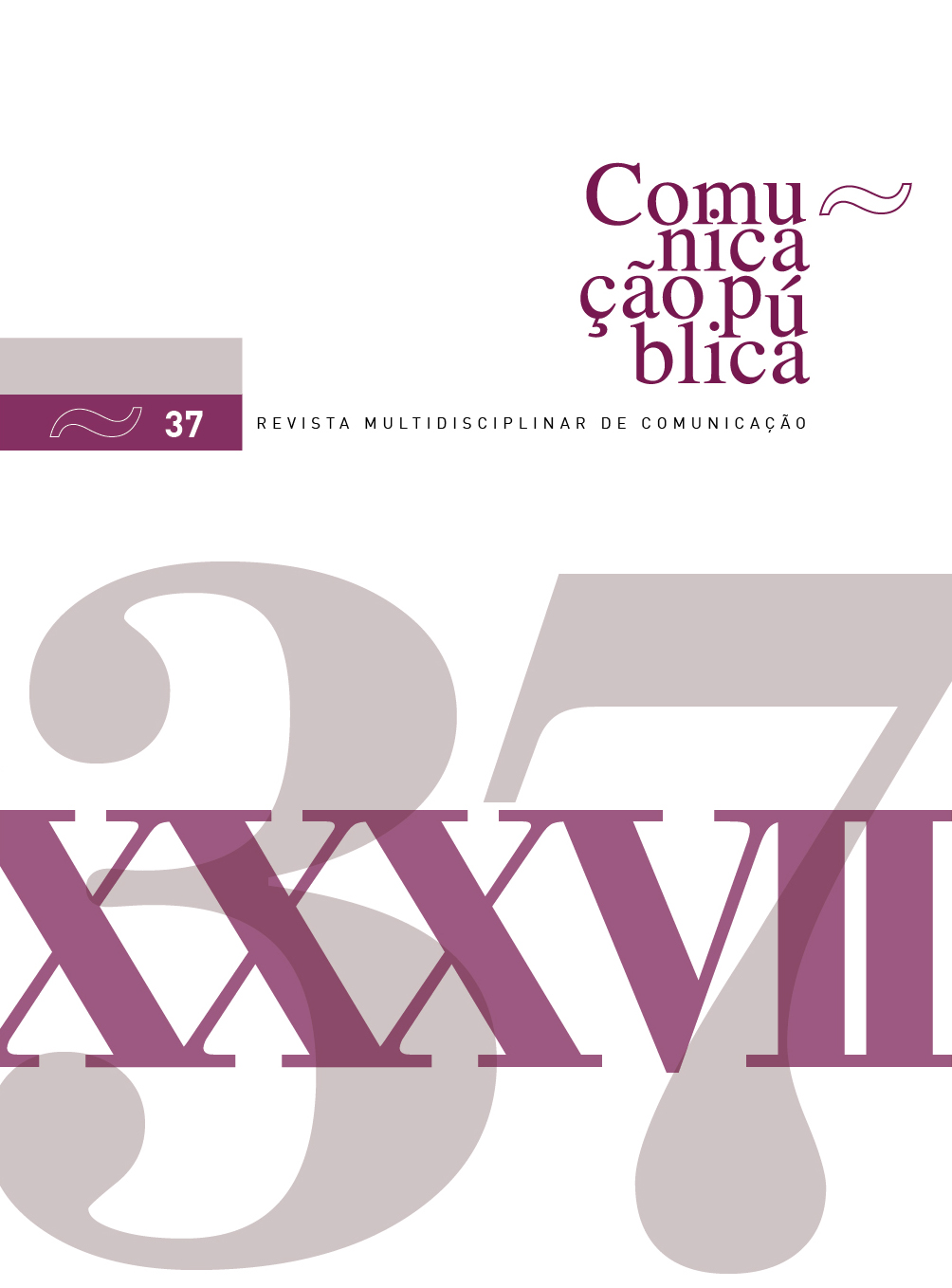20 years of videosurveillance of public spaces in Portugal
overview and sociopolitical challenges
DOI:
https://doi.org/10.34629/cpublica.855Keywords:
videosurveillance, public security, public spaces, PortugalAbstract
This article examines the operation and uses of video surveillance in public spaces in Portugal, considering its progressive expansion, as well as the fact that, in 2025, the first national legislation on the subject will be 20 years old. Based on a literature review, analysis of documentation and interviews with members of public bodies, the conclusion is that, while, on the one hand, video surveillance has been affirmed as a strategic mechanism in public security policy in Portugal, on the other hand, this emphasis is not accompanied by statistical data that allows us to assess its effectiveness in reducing crime. Finally, in the expansion of video surveillance systems in the country, there is a need for a broader concern with guaranteeing the protection of citizens’ privacy and personal data, especially of racialized groups.
Downloads
References
Ball, K. & Graham, S. (2022). Surveillance studies in retrospect and prospect: Recollections and thoughts to mark the 20th anniversary of Surveillance & Society. Surveillance & Society, 20(4), 333–345. https://ojs.library.queensu.ca/index.php/surveillance-and-society/article/view/15892/10511.
Bauman, Z. (2013). Vigilância líquida: diálogos com David Lyon. Zahar.
Brayne, S. (2022). The banality of surveillance. Surveillance & Society, 20(4), 372–378. https://ojs.library.queensu.ca/index.php/surveillance-and-society/article/view/15946.
Bruno, F. (2004). Máquinas de ver, modos de ser: Visibilidade e subjetividade nas novas tecnologias de informação e comunicação. Revista Famecos, 11(24), 110–124. https://revistaseletronicas.pucrs.br/ojs/index.php/revistafamecos/article/view/3271.
Buolamwini, J. & Gebru, T. (2019). Gender shades: Intersectional accuracy disparities in commercial gender classification. Proceedings of Machine Learning Research, 81, 1–15. https://proceedings.mlr.press/v81/buolamwini18a.html.
Câmara Municipal da Amadora. (2020). Fast Track Cities Amadora — Do diagnóstico ao plano estratégico (2019–2025). https://www.cm-amadora.pt/images/INTERVENCAO_SOCIAL/REDE_SOCIAL/PDF/INSTRUMENTOS_PLANEAMENTO/fast_track_cities__plano_estrategico_2019_2025.pdf.
Conselho Superior do Ministério Público. (2011). Parecer sobre Proposta de Lei n. 34/XII/(GOV), que procede à alteração da Lei n. 1/2005, de 10 de janeiro. https://shre.ink/gKNB.
D’Ignazio, C. & Klein, L. F. (2020). Data feminism. MIT Press.
Faustino, D. & Lippold, W. (2023). Colonialismo digital: por uma crítica hacker-fanoniana. Boitempo.
Figueiras, R. (2021). O processo de mediatização e a emergência do capitalismo de vigilância. Observatório (OBS*) Journal, 15(1), 137–149. https://ciencia.ucp.pt/ws/portalfiles/portal/90432405/31818675.pdf.
Frois, C. (2011). Vigilância e poder. Mundos Sociais.
Frois, C. (2015). Segurança em crise: dez anos de videovigilância na via pública em Portugal. In C. Fonseca & H. Machado (Orgs.), Ciência, identificação e tecnologias de governo (pp. 222–234) [online]. Editora da UFRGS/CEGOV. https://lume.ufrgs.br/bitstream/handle/10183/213251/001114121.pdf?sequence=1&isAllowed=y
Foucault, M. (1987). Vigiar e punir: nascimento da prisão. Tradução de Raquel Ramalhete. Vozes.
Fussey, P. & Murray, D. (2019). Independent report on the London Metropolitan Police Service’s trial of live facial recognition technology. Human Rights Centre — University of Essex. https://repository.essex.ac.uk/24946/1/London-Met-Police-Trial-of-Facial-Recognition-Tech-Report-2.pdf.
Jansson, A. (2014). Indispensable things: On mediatization, space and materiality. In K. Lundby (Org.), Mediatization of communication. De Gruyter.
Lyon, D. (2015). “A vigilância hoje é parte de nós”. O Globo. Entrevista realizada por Barbara Marcolini. https://oglobo.globo.com/brasil/conte-algo-que-nao-sei/david-lyon-sociologo-vigilancia-hoje-parte-de-nos-16143232.
Lyon, D. (2018). The culture of surveillance: Watching as a way of life. Polity Press.
Lyon, D. (2022). Reflections on forty years of “surveillance studies”. Surveillance & Society, 20(4), 353–356. https://ojs.library.queensu.ca/index.php/surveillance-and-society/article/view/16067/10513.
Monagreda, J. (2024). Por que falar de raça quando falamos de dados pessoais, inteligência artificial e algoritmos? In A. Gonçalves, L. Torre, L. & P. V. Melo (Orgs.), Inteligência Artificial e algoritmos: desafios e oportunidades para os media. Labcom Books. https://labcomca.ubi.pt/inteligencia-artificial-e-algoritmos-desafios-e-oportunidades-para-os-media/.
Moreira, L. A. (2013). Espaço público, videovigilância e privacidade [dissertação de mestrado]. ISCTE — Instituto Universitário de Lisboa. https://repositorio.iscte-iul.pt/bitstream/10071/7414/1/master_luis_alves_moreira.pdf.
Morozov, E. (2020). Solucionismo, nova aposta das elites globais. Outras palavras. https://outraspalavras.net/tecnologiaemdisputa/solucionismo-nova-aposta-das-elites-globais/.
Noble, S. (2018). Algorithms of oppression: How search engines reinforce racism. New York University Press.
Portugal. (2005). Lei n.º 1/2005, de 10 de Janeiro. https://diariodarepublica.pt/dr/detalhe/lei/1-2005-457049.
Portugal. (2021). Lei n.º 95/2021, de 29 de Dezembro. https://diariodarepublica.pt/dr/detalhe/lei/95-2021-176714548.
Relatório Anual de Segurança Interna. Edições 2005, 2006, 2007, 2008, 2009, 2010, 2011, 2012, 2013, 2014, 2015, 2016, 2017, 2018, 2019, 2020 e 2021. https://www.portugal.gov.pt/pt/gc23/comunicacao/documentos.
Silva, T. (2019). Racismo algorítmico em plataformas digitais: Microagressões e discriminação em código. https://tarciziosilva.com.br/blog/racismo-algoritmico-em-plataformas-digitais-microagressoes-e-discriminacao-em-codigo/.
Zuboff, S. (2019). The age of Surveillance Capitalism: The fight for a human future at the new frontier of power. Public Affairs.
Downloads
Published
Issue
Section
License
Copyright (c) 2024 Direitos do Autor (c) 2024

This work is licensed under a Creative Commons Attribution-NonCommercial 4.0 International License.
Os conteúdos da Comunicação Pública estão licenciados com uma licença Creative Commons - Atribuição-NãoComercial 4.0 Internacional.


